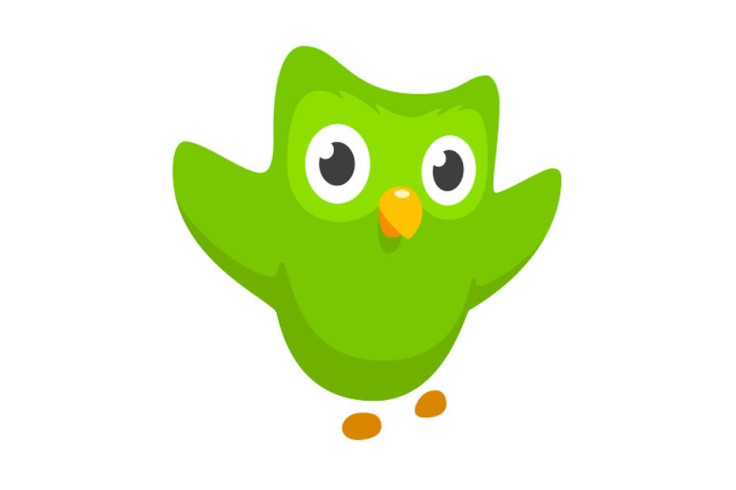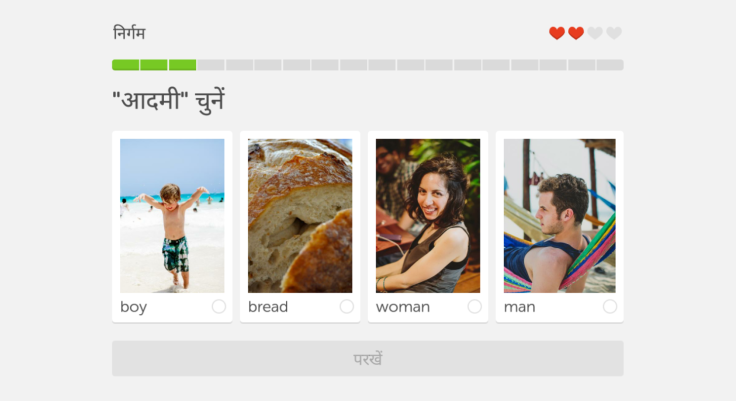Duolingo Launches In India: CEO Explains How App Offers Free Language Education To Millions [Q&A]

Duolingo, a free language-learning platform that has grown in popularity both on Android and Apple devices worldwide, launched in India Thursday with hopes to teach English to the country's vast population, which is known for having better access to smartphones than to toilets.
Launched in November 2011, Duolingo currently has more than 28 million users all over the world, and has so far been downloaded 17 million times on iOS devices and 15 million times on Android devices, according to company statistics. Duolingo, the brainchild of Luis von Ahn, a 34-year-old computer science professor at Carnegie Mellon University in Pittsburgh, Pa., currently offers 23 language courses and is working to offer 20 more.
Duolingo, which was called the Best Education Startup by TechCrunch in 2014 and was selected as Apple App of the Year in 2013, is backed by the likes of Ashton Kutcher and "4-Hour Workweek" author Tim Ferriss, as well as private equity investors.

Von Ahn, who is the CEO of Duolingo, responded to questions from International Business Times in an email Thursday, ahead of the company's India launch. Here are edited excerpts from the interview.
Q: Why launch Duolingo in India now?
A: India has always been an important market for us. It has the world's second largest population and language education is in high demand. Firstly, there are over 20 official languages spoken throughout the country, so the need to speak a second language (English) in order to communicate cohesively is major. However, English education is very expensive and therefore inaccessible to most. The BBC has reported that to many, private classes can cost up to a month's salary. A study conducted in 2011 by Aspiring Minds, a company that assesses student employability, concluded that 78 percent of those surveyed struggled in the English language.
At the same time, Indians are known to love technology. And Duolingo was created to provide language education to everyone, no matter their background or financial situation. It's very effective too -- a study conducted by the City University of New York has shown that 34 hours of Duolingo are equivalent to an entire university semester of language classes in the US -- and university education in the U.S. can be very expensive, especially for foreigners. Duolingo is still young -- we launched less than two years ago -- and we've been adding languages very slowly based on demand and the availability of bilingual people with the skills and interest to build the course.
Q: What are your expectations and what challenges do you foresee for succeeding in a market like India?
A: We expect a relatively high adoption (rate) in India. However it's a completely new market for us and nobody at Duolingo speaks Hindi. As such we will work with our users and contributors to help make the course better, day by day. We also don't do any paid advertising, so the only way we will become popular is if people like the platform so much they tell their friends. This has been the case in other places, and how we reached 28 million users, and we hope it is the case in India as well.
Q: Can you explain your business model and how the company plans to generate revenues in India? Is this model any different from your models overseas?
A: Duolingo is and will always be 100 percent free to its users. Instead of charging users, Duolingo finances its high-quality education platform using a crowdsourcing model. Users have the option of translating texts as a method to strengthen the skills they learn on Duolingo. For example, after learning food vocabulary, they have the option of translating a menu. Duolingo sells these translations to international media companies. Everybody benefits: students receive free language education and real-world practice, while websites get collaborative high-quality translations done by Duolingo students. Duolingo's first translations clients include CNN and BuzzFeed. However, we will not be doing translations to Hindi -- at least not in the near future. So the course will have no monetization at this point, we just hope people love it and find it to be effective.
Q: Duolingo currently does not rely on ads but will you consider them in the future?
A: This is correct, we don't do any ads or paid marketing of any sort. This may have to change one day, but for now we invest all our funds into making the platform better, more entertaining and effective so that it continues growing via word of mouth.
Q: How do you differentiate Duolingo from other rival apps?
A: Duolingo is quite different from other language education apps. First, it's actually completely free -- no in-app purchases or "freemium" version. Secondly, it's a game. To advance, users have to pass levels, win points, compete against other users and even buy virtual goods with the points they earn. This attracts users who wouldn't otherwise be interested in learning a language, but who take away time they would normally use to play games on their mobile phones. Finally, Duolingo is completely science-based. Everything we do is based on very large pieces of data, and we improve the platform's efficiency constantly.
Q: Duolingo is popular on iOS devices but India is more of an Android market. How does this affect your plans?
A: Duolingo is actually very popular on Android as well. We're the number one education app on Android, and most of our users outside of the U.S. use Android. In fact, 50 percent of our mobile users are Android. And Google (NASDAQ:GOOGL) selected us as "Best of the Best" for Android 2013.
Q: Duolingo teamed up with CNN and BuzzFeed in the U.S. Do you have any similar tie-ups planned for other markets, including in India?
A: Not at the moment. We might look to expand our translation services in the future, but our focus right now is in making Duolingo the de facto way to learn a language online worldwide.
Q: How do you plan to use your previous round of funding? Is there anything else in the pipeline?
A: We'll use it to make Duolingo more effective, more entertaining and overall better. Some of our additional plans include a completely digital language certification app, which we will launch in May with Google. We're also expanding to many more markets. We'd like to be able to offer every language anyone might want to learn.
© Copyright IBTimes 2024. All rights reserved.






















